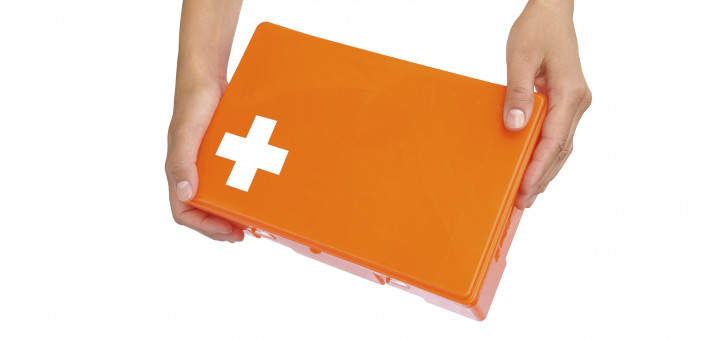As we approach the first anniversary of Hurricane Katrina and the most destructive storm season in history, it may help to remember that Mother Nature grants no free passes to those struggling with illness. Many regions have already suffered extensive flooding, wildfires, and other natural disasters; manmade ones, like power outages, building collapses, and toxic spills can also spark a nightmarish interruption of health care and other essential HIV services. But enough of the Chicken Little act: Here are five practical safeguards to keep you one step ahead of the Weather Channel (and FEMA).
1. Stock up on meds, keeping at least one extra month’s supply. To finance the stash:
• Ask whether your insurance provider will help, or if other plans do
• Contact your local clinic or AIDS service organization, which might maintain a cache of meds from patients who have switched cocktails; be sure to check with your doc first to discuss the meds’ expiration dates and the source’s reliability
• Solicit extra meds through your network of HIV positive friends or even through HIV Internet sites, again always consulting your doctor.
• And remember that your state ADAP program will you acquire a second 30-day prescription whenever you report the first as lost.
2. If you don’t have enough meds in an emergency, do not skip doses to “spread them out.” That could cause resistance, and you could be unable to resume that same regimen in the future. Take your regular doses as indicated while you’re searching for a backup source.
3. If you live in a hurricane- or tornado-prone area, establish a relationship with a medical facility or HIV clinic in a town further inland, where you’re likely to be evacuated. Hundreds of positive people from New Orleans received service at the Montrose Clinic in Houston.
4. If you think your area could be evacuated, fill a water-proof carrier with:
• copies of proper identification;
• your insurance card;
• a list of your drug reactions and allergies;
• your doctor’s contact info;
• your personal and family health history;
• a list of all your medications including dosages and frequency.
E-mail yourself (or snail mail to a friend’s house) all this information so it can be accessed from a remote location should your hard copy be lost.
5. Buy a portable thermal bag or box that keeps food or meds cool for hours, crucial if you take insulin or any other med requiring refrigeration
For other information on general emergency preparedness: Red Cross (www.redcross.com).

Istock






Comments
Comments